At this weekend’s 10th annual Saban Forum, President Barack Obama offered a detailed and nuanced defense of the interim nuclear deal with Iran concluded last month. In his effort to rebut the intense criticisms of the agreement voiced by Israeli leaders as well as by many members of Congress, Obama underscored that the latest American diplomacy toward Tehran is grounded in a conviction that Iran has experienced a meaningful political shift.
The president’s remarks on Iran came during the course of a conversation with Forum Chairman Haim Saban. In responding to a series of succinct inquiries, Obama touched upon most of the same talking points that have been repeated by various administration officials and advocates in defending the deal. These include the argument that the interim accord halts Iran’s nuclear progress for the first time in the decade; that it facilitates a tough-minded pursuit of wide-ranging constraints and verification in a final deal; that the sanctions relief offered as part of the November pact is minimal, reversible and an essential component of maintaining international cohesion around the existing strategy of pressuring Tehran to cede its nuclear ambitions.
However, Obama sought to buttress his case by challenging the deep-seated distrust of purported Iranian moderates harbored by many in Washington and beyond. He disputed the presumption that Iran’s new president, Hassan Rouhani, is simply a more charming version of his predecessor, the odious Mahmoud Ahmadinejad, countering that this “understates the shift in politics that took place in this election.” Obama contended that while Rouhani is part of a regime grounded in anti-Americanism, “what he also represents is the desire on the part of the Iranian people for a change of direction. And we should not underestimate or entirely dismiss a shift in how the Iranian people want to interact with the world.”
I happen to agree with the notion that Iran is in the midst of a historic shift, one whose ultimate destination remains profoundly uncertain and subject to reversal but one that might enable a resolution of the nuclear impasse and perhaps even more. This was my interpretation on the night that Rouhani was elected, and several months later in the Brookings Essay that was published on the eve of Rouhani’s historic trip to New York, where he broke the revolutionary taboo on contact with the “Great Satan” and exchange telephone greetings with President Obama.
Many would disagree, and their skepticism is justified by a history in which Iran’s revolutionary moderation was either illusory, as with the Iran-contra scheme’s wild-eyed visions of marginalizing Iran’s clerics, or easily outmaneuvered, as occurred during both of Iran’s previous dabblings in detente, under presidents Ali Akbar Hashemi Rafsanjani and Mohammad Khatami.
I think the facts suggest that this is a unique historical moment in Iran — Rouhani has a more secure mandate than either Rafsanjani or Khatami ever could carve out, and the evidence lies in what he has been able to say and do since he entered the presidential race in May 2013. Still, I think it is important for the administration to incorporate this argument more prominently in their defense of the Geneva deal, which to date has lately sought refuge in Reaganesque rhetoric about trust and verification.
Diplomacy with an adversary is not simply about the terms of the agreement; it’s ultimately an expression of a political judgment. The Obama administration is taking a gamble on Rouhani; the merits of that case ought to be thoroughly debated. The President is hardly a starry-eyed optimist; he rated the prospects for achieving a final nuclear deal with Iran as less than 50 percent. The fact that he is willing to take a chance on Iran only underscores how powerful the possibilities apparently appear to a risk-averse U.S. administration.
In referencing the domestic political dynamics, President Obama situated the Iran diplomacy as a logical extension of his broader strategic approach to the region, arguing that “[t]here’s a lot of change that’s going to be taking place in the Middle East over the next decade. And wherever we see the impulses of a people to move away from conflict, violence, and towards diplomatic resolution of conflicts, we should be ready and prepared to engage them — understanding, though, that, ultimately it’s not what you say, it’s what you do.”
That explanation may be the clearest articulation of the Obama doctrine as it applies to the current turmoil in the Middle East; this is a President who sees the best opportunities for Washington to advance peace and progress as those that emanate from the region, rather than those that might be directed or imposed upon it by the United States or others. The administration’s activism on behalf of a comprehensive resolution to the Israeli-Palestinian conflict stands as a notable exception to this posture, an anomaly that appears to be a function of the inexplicably indefatigable Secretary of State John Kerry.
I’ve excerpted some of the most notable highlights of the President’s conversation with Haim Saban as they pertain to Iran below. The webcast of the entire conversation, including Obama’s remarks on efforts to achieve a comprehensive peace agreement between Israelis and Palestinians, can be found here and the transcript of the Obama-Saban discussion can be read in its entirety as published in Haaretz. Additional coverage of the President’s speech can be found in a number of American and Israeli media outlets, including:
- “Analysis: Obama succeeded in talking to Israelis, over the head of Netanyahu,” by Ben Caspit in The Jerusalem Post.
- “Obama defends Iran deal at Saban Forum,” by Reid J. Epstein in Politico.
- “Iran deal could allow peaceful nuclear program, Obama says,” by Paul Richter in the Los Angeles Times.
- “Obama Says He Can Envision Nuclear Deal With Iran,” by Michael D. Shear in the New York Times.
Excerpts From President Obama’s Remarks on Iran to the Saban Forum
We put in place an unprecedented regime of sanctions that has crippled Iran’s economy, cut their oil revenues by more than half, have put enormous pressure on their currency — their economy contracted by more than 5 percent last year. And it is precisely because of the international sanctions and the coalition that we were able to build internationally that the Iranian people responded by saying, we need a new direction in how we interact with the international community and how we deal with this sanctions regime. And that’s what brought President Rouhani to power. He was not necessarily the first choice of the hardliners inside of Iran.
Now, that doesn’t mean that we should trust him or anybody else inside of Iran. This is a regime that came to power swearing opposition to the United States, to Israel, and to many of the values that we hold dear. But what I’ve consistently said is even as I don’t take any options off the table, what we do have to test is the possibility that we can resolve this issue diplomatically. And that is the deal that, at the first stages, we have been able to get done in Geneva, thanks to some extraordinary work by John Kerry and his counterparts in the P5-plus-1.
*****On verification measures in the deal*****
It’s not as if there’s going to be a lot of capacity to hide the ball here. We’re going to be able to make an assessment, because this will be subject to the P5-plus-1 and the international community looking at the details of every aspect of a potential final deal, and we’re consulting with all our friends, including Israel, in terms of what would that end state look like. And if we can’t get there, then no deal is better than a bad deal. But presuming that it’s going to be a bad deal and, as a consequence, not even trying for a deal I think would be a dire mistake.
*****On sanctions relief*****
Well, with respect to the end state, I want to be very clear there’s nothing in this agreement or document that grants Iran a right to enrich. We’ve been very clear that given its past behavior, and given existing U.N. resolutions and previous violations by Iran of its international obligations, that we don’t recognize such a right, and if, by the way, negotiations break down, there will be no additional international recognition that’s been obtained. So this deal goes away and we’re back to where we were before the Geneva agreement, subject — and Iran will continue to be subject to all the sanctions that we put in place in the past and we may seek additional ones.
*****On Iranian enrichment capabilities*****
Now, you’ll hear arguments, including potentially from the Prime Minister, that say we can’t accept any enrichment on Iranian soil. Period. Full stop. End of conversation. And this takes me back to the point I made earlier. One can envision an ideal world in which Iran said, we’ll destroy every element and facility and you name it, it’s all gone. I can envision a world in which Congress passed every one of my bills that I put forward. (Laughter.) I mean, there are a lot of things that I can envision that would be wonderful. (Laughter.) But precisely because we don’t trust the nature of the Iranian regime, I think that we have to be more realistic and ask ourselves, what puts us in a strong position to assure ourselves that Iran is not having a nuclear weapon and that we are protected? What is required to accomplish that, and how does that compare to other options that we might take?
And it is my strong belief that we can envision a end state that gives us an assurance that even if they have some modest enrichment capability, it is so constrained and the inspections are so intrusive that they, as a practical matter, do not have breakout capacity.
Theoretically, they might still have some. But, frankly, theoretically, they will always have some, because, as I said, the technology here is available to any good physics student at pretty much any university around the world. And they have already gone through the cycle to the point where the knowledge, we’re not going to be able to eliminate. But what we can do is eliminate the incentive for them to want to do this.
*****On backchannel diplomacy*****
The truth is, is that, without going into the details, there weren’t a lot of secret negotiations. Essentially what happened — and we were very clear and transparent about this — is that from the time I took office, I said we would reach out to Iran and we would let them know we’re prepared to open up a diplomatic channel. After Rouhani was elected, there was some acceleration leading up to the U.N. General Assembly. You’ll recall that Rouhani was engaging in what was termed a charm offensive, right, and he was going around talking to folks. And at that point, it made sense for us to see, all right, how serious are you potentially about having these conversations.
They did not get highly substantive in the first several meetings but were much more exploring how much room, in fact, did they have to get something done. And then as soon as they began to get more technical, at that point, they converged with the P5-plus-1 discussions.
*****On political change in Iran*****
I will say this: The fact of Rouhani’s election — it’s been said that there’s no difference between him and Ahmadinejad except that he’s more charming. I think that understates the shift in politics that took place in this election. Obviously, Rouhani is part of the Iranian establishment and I think we have to assume that his ideology is one that is hostile to the United States and to Israel. But what he also represents is the desire on the part of the Iranian people for a change of direction. And we should not underestimate or entirely dismiss a shift in how the Iranian people want to interact with the world.
There’s a lot of change that’s going to be taking place in the Middle East over the next decade. And wherever we see the impulses of a people to move away from conflict, violence, and towards diplomatic resolution of conflicts, we should be ready and prepared to engage them — understanding, though, that, ultimately it’s not what you say, it’s what you do.
And we have to be vigilant about maintaining our security postures, not be naïve about the dangers that an Iranian regime pose, fight them wherever they’re engaging in terrorism or actions that are hostile to us or our allies. But we have to not constantly assume that it’s not possible for Iran, like any country, to change over time. It may not be likely. If you asked me what is the likelihood that we’re able to arrive at the end state that I was just describing earlier, I wouldn’t say that it’s more than 50/50. But we have to try.
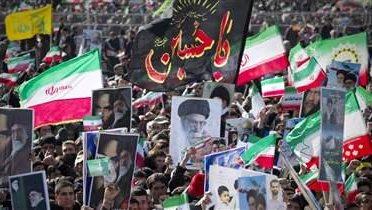
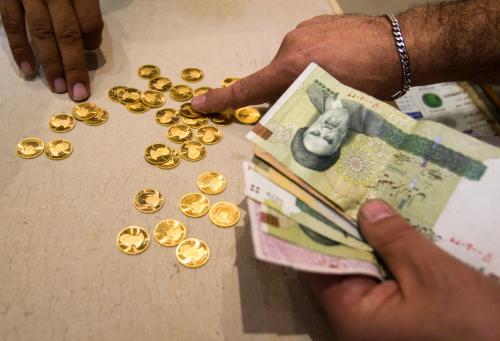
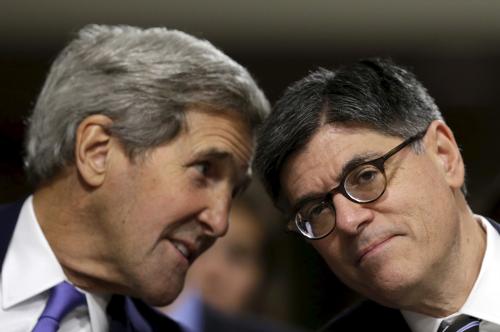
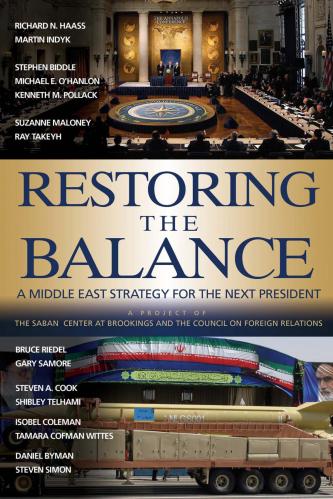
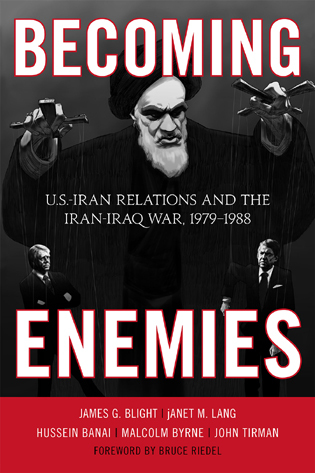
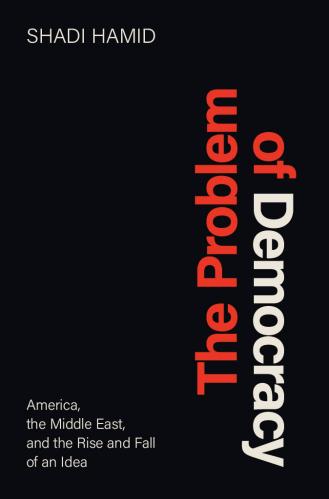



Commentary
President Obama Urges Saban Forum: Don’t Underestimate Political Shift In Iran
December 8, 2013